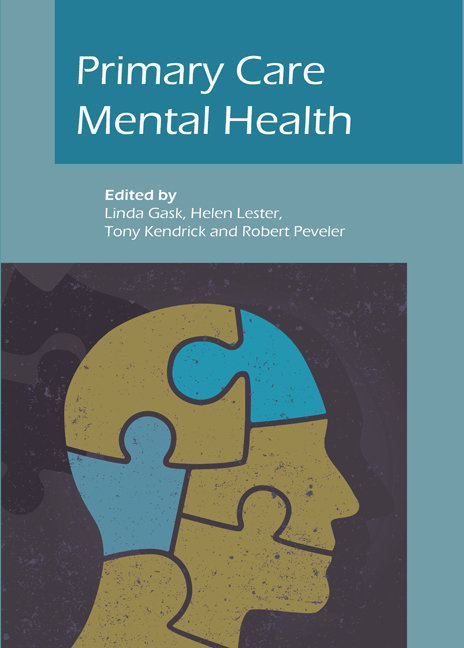Book contents
- Frontmatter
- Contents
- List of figures, tables and boxes
- List of contributors
- Preface
- Part I Conceptual basis and overarching themes
- Part II Clinical issues
- 8 Depression
- 9 Suicide and self-harm
- 10 Anxiety
- 11 Medically unexplained symptoms
- 12 Mental health problems in older people
- 13 Perinatal mental health
- 14 Child and adolescent mental health
- 15 Psychosis
- 16 Emergencies in primary care
- 17 Substance misuse
- 18 Management of alcohol problems
- 19 Eating disorders
- 20 Physical health of people with mental illness
- 21 Ethnic minorities
- 22 Asylum seekers and refugees
- 23 Sexual problems
- Part III Policy and practice
- Part IV Reflective practice
- Epilogue
15 - Psychosis
from Part II - Clinical issues
- Frontmatter
- Contents
- List of figures, tables and boxes
- List of contributors
- Preface
- Part I Conceptual basis and overarching themes
- Part II Clinical issues
- 8 Depression
- 9 Suicide and self-harm
- 10 Anxiety
- 11 Medically unexplained symptoms
- 12 Mental health problems in older people
- 13 Perinatal mental health
- 14 Child and adolescent mental health
- 15 Psychosis
- 16 Emergencies in primary care
- 17 Substance misuse
- 18 Management of alcohol problems
- 19 Eating disorders
- 20 Physical health of people with mental illness
- 21 Ethnic minorities
- 22 Asylum seekers and refugees
- 23 Sexual problems
- Part III Policy and practice
- Part IV Reflective practice
- Epilogue
Summary
The challenges
People who develop a psychosis can find themselves strangers in their own land (Box 15.1). The health and social effects create spirals of decline and a loss of autonomy which can quickly become entrenched and difficult to address. This situation would be unacceptable in almost any other area of healthcare. It is time, therefore, to re-examine not only how primary care practitioners think about people with psychosis, but also how health services can be better organised to provide 21st-century care for patients.
What do we mean by the term ‘psychosis’?
Terminology in this area can be fraught with difficulty and ‘psychosis’ is not, of itself, a diagnosis. The primary care version of ICD–10 (World Health Organization, 2004) offers a condensed ICD–10 classification, with 23 diagnostic categories for use by generalists in primary care settings.
However, since psychoses have, historically, been regarded as disorders of adulthood, ICD–10 has yet to classify adolescent psychosis. The most commonly used categories are probably:
• F23, acute psychotic disorder
• F20, chronic psychotic disorder
• F31, bipolar affective disorder.
The British Psychological Society (2000) estimated that around 10–15% of the general population experience what could be described as psychotic phenomena (i.e. hearing voices or hallucinations). Most are neither distressed nor seek help. Research shows that such people in the general population will not have received a diagnosis or have needed treatment for such experiences (van Os et al, 2000; Johns et al, 2004). There is also growing evidence that some people can have psychotic experiences following extremely stressful or traumatic life experiences such as solitary confinement, social isolation, sleep deprivation, abuse and assault. This chapter, however, is focused on the majority of people who are distressed and do seek help for their symptoms.
Epidemiology
If all individuals with schizophrenia, bipolar disorder and chronic psychosis are included, psychosis affects approximately 3% of the population in the UK (Bird, 1999). This means a diagnosis of psychosis is about as common as one of insulin-dependent diabetes.
Much work has focused on the risk factors for psychosis, although it is also important to remember that a risk factor only indicates a link and is not necessarily causal.
- Type
- Chapter
- Information
- Primary Care Mental Health , pp. 232 - 245Publisher: Royal College of PsychiatristsFirst published in: 2017

